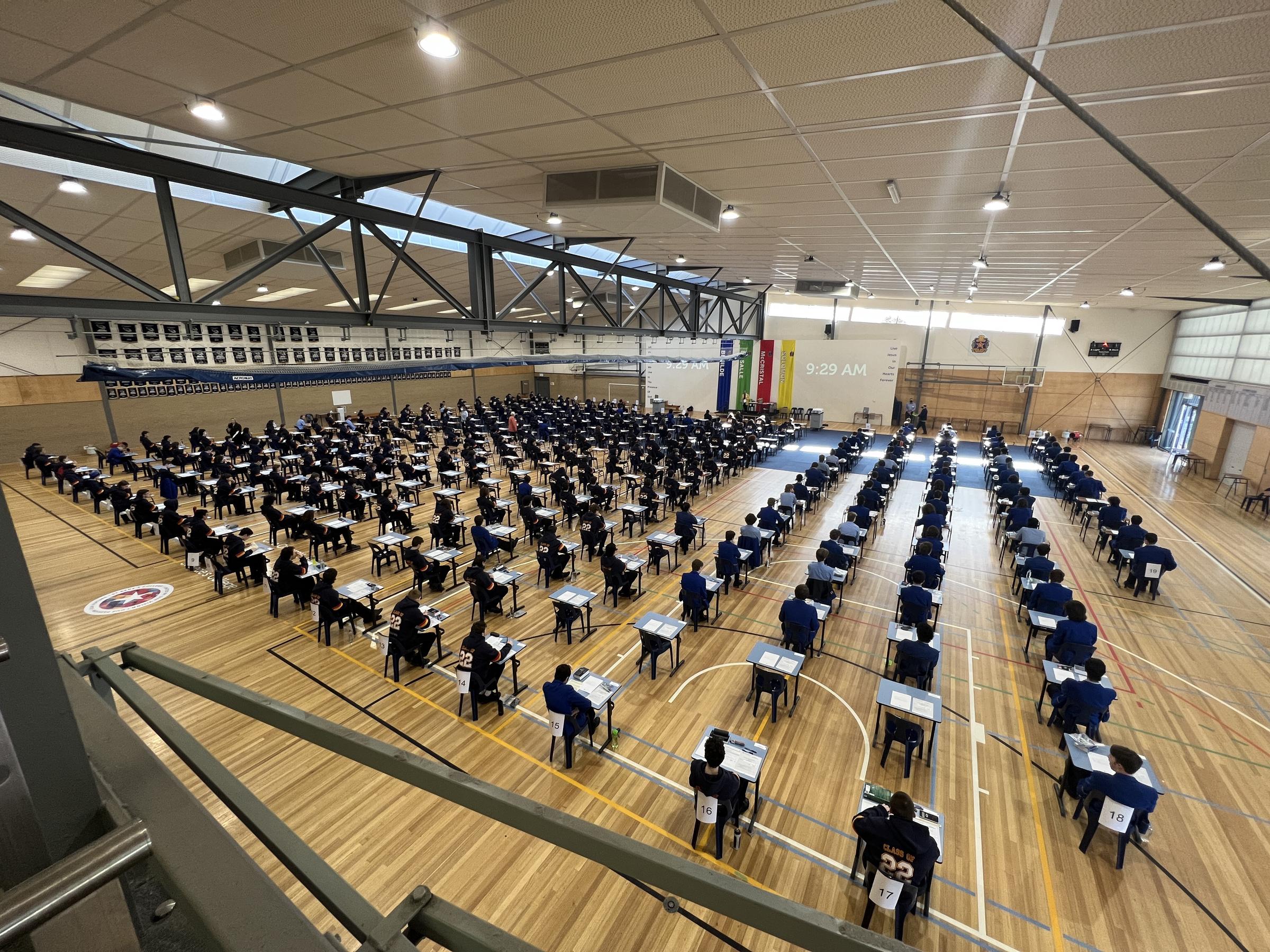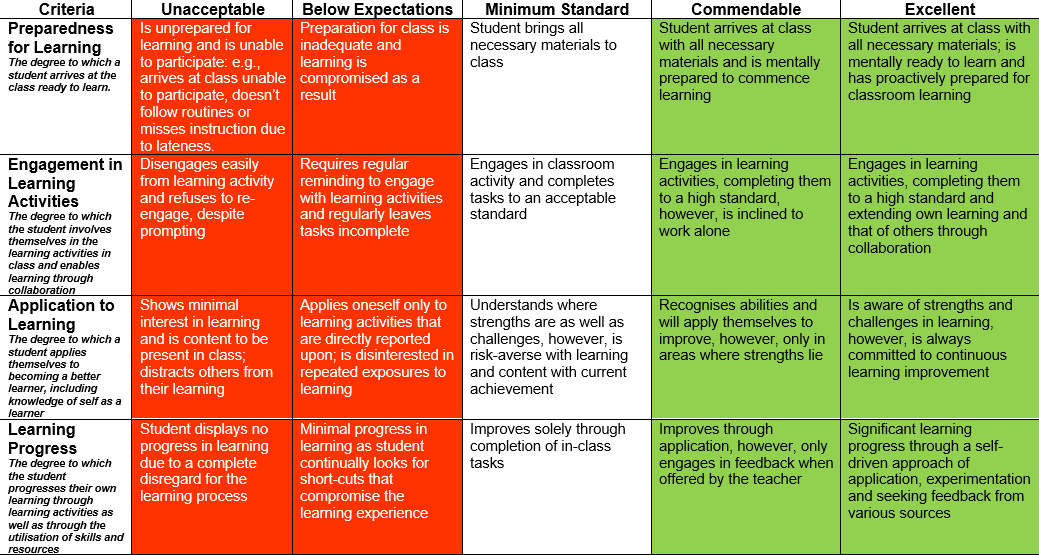Teaching and Learning

Learning Habits Reporting
In recent weeks, all students and their families will have received feedback regarding student learning habits. Students have been assessed against a rubric in all subjects across all year levels; the rubric has been shared previously however it is attached below. This is in order to ensure there are consistent expectations across the College, as well as maximise learning that is occurring in every class.
On Tuesday 21 March, a number of parents attended a forum to discuss the use of the rubric in building learning culture. My hope is that those who attended found the evening informative, and gave them a sense of the greater purpose of the assessment. As the leader of Learning and Teaching, it also provided an opportunity for me to engage with parents and hear their thoughts on what we are endeavouring to do, as well as any concerns they may have.
I found this feedback to be of great benefit and will outline a number of points that were raised at the evening below:
Negative and Positive Habits
- The two left columns of the rubric - ‘Unacceptable’ and ‘Below Expectations’ - are considered negative habits, and affect learning in a negative way.
- The behaviours outlined in the right-hand column - ‘Commendable’ and ‘Excellent’ - are considered to have a positive effect on learning. These are research-based, and have been found to positively influence student outcomes.
- Our endeavour is to change behaviour so that as many students as possible are able to demonstrate positive learning behaviours.
- The centre column - ‘Minimum Standard’ - is neither positive nor negative. Rather, it is a base standard that is deemed acceptable.
Minimum Standard
- Behaviours listed in the centre column of the rubric are the minimum acceptable standard at St Bede’s College.
- Students who are judged to display these behaviours should endeavour to change in order to better reflect what is described in the two positive columns (on the right).
- The term ‘minimum standard’ has been perceived by some parents as quite ‘harsh’. The message that we would like students to receive is, that if you are judged to display these behaviours, then change is required.
- The term ‘minimum standard’ came at the suggestion of parents. During the consultation process in constructing the rubric, parents wanted it made clear that, to them, ‘satisfactory’ meant it was ‘okay’, and did not require change, which is not what is intended.
Ongoing Application
- The data from the rubric will be compiled for each student across all subjects in each year level to look at their ‘positive’ and ‘negative’ learning habits.
- High numbers of positive habits will be explicitly commended; high numbers of negative habits will prompt an intervention.
- Data will continue to be compiled throughout the time a student is at St Bede’s College. It is intended that it will allow our students to develop their capacity as more able and independent learners.
Further information regarding the reporting and use of Learning Habits data will be communicated separately once progress reports have been compiled. Should you have any questions or concerns, please do not hesitate to make contact.
Attendance at School
St Bede’s College is continually looking at ways in which we can help students achieve the best possible outcomes from their education. With this in mind, and considering recent updates to the Child Safe Standards, the College is undertaking a review of all policies and procedures relating to school attendance.
Maximising attendance - and, in turn, learning - is a collaborative responsibility, with students, teachers and parents all required to play a role. Below you will find a number of key principles relating to school attendance that must be emphasised:
- Attendance at school should be prioritised. Decisions regarding non-essential absences, which may include family holidays, should not be taken lightly.
- The school requires all absences to be notified by a parent or carer in writing. Email and via the PAM portal are the preferred methods.
- The school will communicate directly with parents or carers when students are not required to be at school. Any indication from students that they don’t need to be at school should be verified against a communication from the College.
- As per Victorian Department of Education and Training Policy, it is the school who approves an absence, not a parent or carer. Whilst parents and carers are able to choose whether or not a student attends on any particular day and provide reason, it is the school who decides whether or not that choice is appropriate (and as such, is an approved absence).
As indicated, once the review has been concluded - and the school’s policy and procedure are updated - information will be distributed.
The Victorian Department of Education and Training have provided information here if you would like further details. We look forward to working collaboratively with our families to best support learning and provision of a quality education.
Brenden Mair
Deputy Principal - Teaching and Learning

